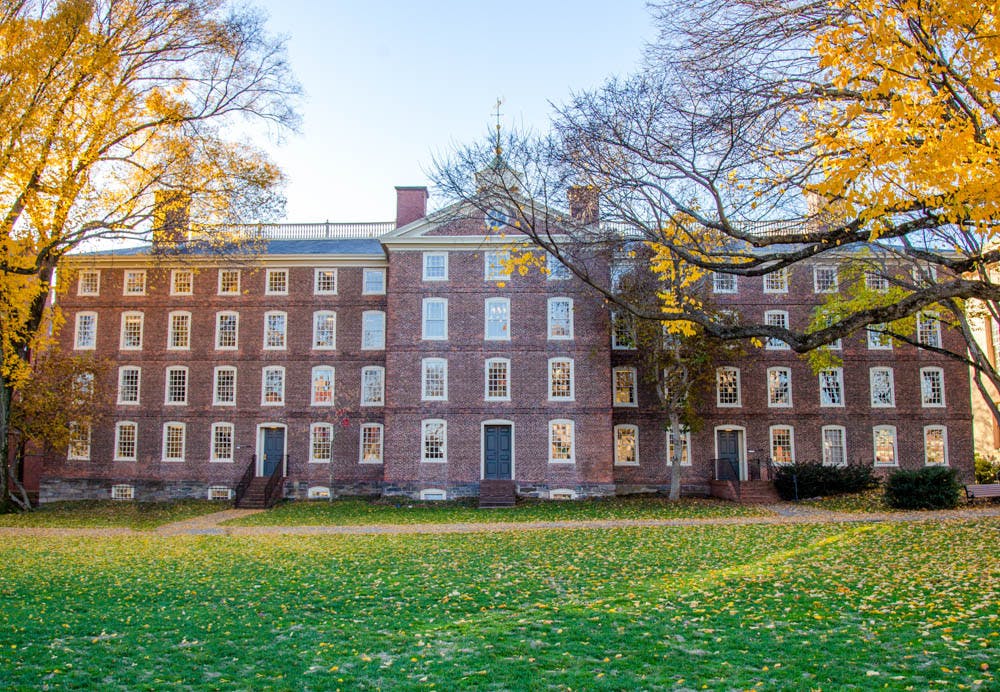Tenure-track and tenured professors in the humanities and in some social science departments will be allowed to teach three courses per year as opposed to four, announced Provost Richard Locke P ’18 in an Op-Ed in today’s Herald.
This change will be implemented over the next few years as departments submit plans to the Dean of the Faculty that show how they plan to decrease the course loads of their professors, said Dean of the Faculty Kevin McLaughlin.
The reduced course load expectation comes two years after Locke requested that McLaughlin and the Faculty Executive Committee form an Ad Hoc Committee on Enhancing Faculty research to consider how to maximize faculty engagement on campus, Locke wrote in the Op-Ed. Over the last few years, the committee launched a pilot program and gathered data — ultimately concluding that the reduction in course expectations is the best way forward for the University.
Currently, all humanities departments and the Departments of History, Sociology, Anthropology and Education require tenure-track and tenured professors to teach four courses a year. On the other hand, some social science departments, such as the Department of Political Science and Department of Economics, require professors to teach three courses per year. In the hard sciences, professors are expected to teach two courses per year.
Though some professors will be teaching fewer classes, the University hopes to meet student demand through improved departmental organization and a reduction in the frequency of classes with approximately five students enrolled. McLaughlin made a distinction between small courses that are required for completion of a concentration, which are “essential,” and those that are not. Under the new plan, classes that do not qualify as essential will be offered with less frequency, he said, as many humanities concentrations do not require specific courses.
McLaughlin further added that especially small classes may not be ideal learning environments, saying that “classes of about seven students rather than three are probably a better environment for students and a better use of a professor’s time.” Following this change in policy, students will still be able to create group independent studies to pursue topics not covered by classes.
The University does not expect to see notable increases in adjunct faculty or the number of tenure-track faculty in response to the changes. In his Op-Ed, Locke wrote that “a proliferation of adjunct faculty is not part of the solution,” andMcLaughlin added that the University also does not anticipate that the changes will “lead to any growth in the number of tenure-track faculty.”
Although the University is not budgeting additional funds for temporary teaching, it intends to reallocate some of the existing funds to arts departments where many courses are consistently over-enrolled, McLaughlin said. In these departments, such as literary arts and visual arts, “we know that each course lost is actually a course that 12 or 17 students will not be able to take,” he explained.
Professor of International and Public Affairs and of Political Science and FEC Chair Ross Cheit discussed the relationship between course offerings and increasing opportunities for faculty research, highlighting the benefits of the change. “There’s clearly a trade-off, but I think it’s a reasonable one: There will not be as many tiny courses, … but what the professors get in return is enormous.”
In response to a question about whether the University is prioritizing research over undergraduate education, Cheit said that the University is “a research institution that values teaching. No one has ever acted like the teaching aspect drives the University.” This change “makes it easier to be a good teacher and also get that book written” and will help faculty achieve the most important aspect of tenure files, which are publications, he added.
This move will also allow faculty, who have expressed an inability to keep up with their faculty governance and advising duties, to devote more time to these activities, McLaughlin said.
Cheit expects the change to make the University more attractive in the hiring process, referencing his own choice to teach at Brown over the University of Virginia because Brown had required four courses per year in comparison to the University of Virginia’s five.
“Faculty in the arts and humanities are really grateful. … This will affect their teaching, advising, service and research in ways that should be exciting,” Cheit said.





